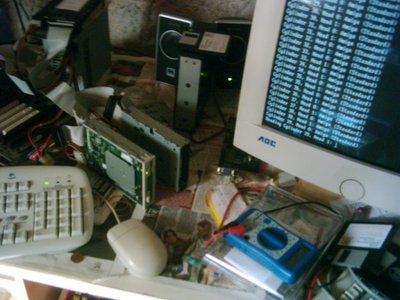First post, by keenerb
I've obtained about 50 mac-formatted floppy disks from an estate sale.
Based on the disk labels, these are poems/short stories/novels.
I'd really love to read these disks, but all my machines are IBM/PC, and in fact I've had very little experience at all with Macintosh/Apple systems.
I'm assuming, since these are HD floppies, that they're probably early macintosh or late Apple.
I'm looking to pick up a machine off of Craigslist or Ebay that could read these, what's my best/cheapest option? I'm thinking one of those garish crayola clamshell mac laptops from the late 90's should be a pretty safe bet.
